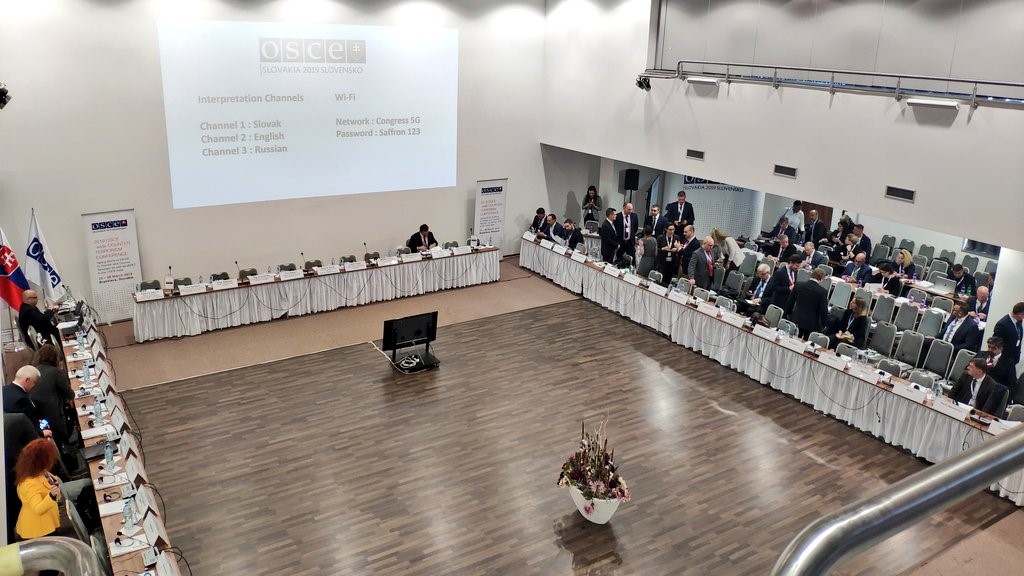
This year marks the second year in a role that the Brussels International Center was invited to participate at the annual OSCE-wide Counter-Terrorism International Conference, which is taking place in Bratislava, Slovakia, from the 25th to 27th of March, 2019. This conference brought together a variety of high-level representatives, ambassadors, experts and academics representing wide geographic and disciplinary ranges to discuss progress in international cooperation in countering terrorism in the wide OSCE area.
Over the course of the first day, participants were given the opportunity to discuss and assess the “state of play” in efforts to prevent and counter terrorism in the OSCE area. In the morning session, speakers reflected on the evolution and development of relevant definitions, policy and strategies, gaps and challenges in terms of implementation of specific frameworks to respond to threats. Mr. Makis Voridis, Chair of the Ad Hoc Committee on Counter-Terrorism, OSCE Parliamentary Assembly, indicated that border control and information-sharing are key elements to strategize OSCE`s efforts to respond to the threats of violent extremism. Complementing, Mr. Voridis` inputs, Ambassador Aylin Tashan, Director-General for Research and Security Issues of the Turkish Ministry of Foreign Affairs, discussed about the transboundary characteristics of terrorism in the wider Middle-Eastern region. She stated that “terrorists in one country are now able to inspire other groups of terrorists in other contexts”.
The afternoon session approached the topic through lens of human rights. Ms. Jennifer Croft, Deputy Head of OSCE Office for Democratic Institutions and Human Rights (ODIHR), highlighted that experience has shown that respecting and protecting human rights are not an impediment to, but vital condition for addressing security threats effectively. According to Ms. Croft, `A more inclusive approach is necessary for not singling-out specific groups, which can lead to discrimination and marginalization`. Ms. Croft further expanded her presentation by highlighting ODIHR`s mandate in supporting the OSCE participating states in ensuring the compliance of their counter-terrorism initiatives with a human dimension and respect to human rights standards.
There were many innovative recommendations made throughout the day. Participants left with an understanding of the need for a whole community and human rights approach to addressing issues of violent extremism on the ground. In addition, speakers considered how international guidance on preventing and countering violent extremism has been or can be best tailored for local contexts.

